

Author: E.A. Sandrose
Narrator: Ulka S. Mohanty
Length: 13 hours 44 minutes
Series: The Gempendium, Book 1
Publisher: E.A. Sandrose
Released: Mar. 5, 2020
Genre: Fantasy; Young Adult
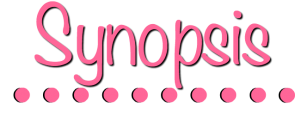
On the planet Precios, gemstones can cure everything from heartache to heartburn, unless you're one of the children doomed to Devil's Crown to mine them. All Yrund wants is to get back to her beloved home in the Sky Country, but escaping the powerful Mining Wield will take more than just courage. Especially when Yrund accidentally steals the only living gem found in centuries. Journey into a rich new world where wonder and peril are never far apart - a tale of poetry-loving pirates, rebel bands of herders, invisible forest creatures, and a mysterious gemstone with a mind all her own. By turns heartwarming and harrowing, The Every Stone is about friendship, survival, and finding your power where you least expect it.

E.A. Sandrose lives in the mountains with her husband and many animals. She's an expert at cloud watching and picking up rocks. Tools of the trade include a library card, a squat brown teapot and wooden pencils. The Every Stone is her first novel.
Website⎮Instagram⎮Pinterest

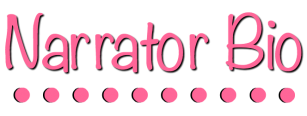 Actor, voice actor, dancer, choreographer and chef, Ulka S. Mohanty has voiced numerous video games and audiobooks, is the recurring voice of Dr. Kapur on NBC Universal’s Nina’s World, Echo in Crackdown 3, and the voice of multiple live shows throughout Disney World’s Animal Kingdom theme park. Film/TV credits include: The Moodys (FOX); Doggoned (Arshad Khan); Closure (JFA Productions); SEAM (Rajeev & Elan Dassani); Rearranged (Shawn Parikh); Cutthroat Kitchen (Food Network); and a supporting role in the upcoming sci-fi film Needle in a Timestack (John Ridley). She has choreographed multiple dance works for Disney World, including Up! A Great Bird Adventure and Rivers of Light. Latest dance/theatre credits include: House of Joy (San Diego Rep); Women Beyond Borders (Rubicon Theatre); Monkey Love (Sacred Fools Theatre); In|Expiration (Sheetal Gandhi); Indian Mythology And Me (Dancing Storytellers); Pray To Ball (Skylight Theatre); Sherlock Through the Looking-Glass (Porters of Hellsgate); The Mid-life Crisis of Dionysus (Mainline Theatre); and Amazone: A Very Violent Love Story (Vangarde Productions).
Actor, voice actor, dancer, choreographer and chef, Ulka S. Mohanty has voiced numerous video games and audiobooks, is the recurring voice of Dr. Kapur on NBC Universal’s Nina’s World, Echo in Crackdown 3, and the voice of multiple live shows throughout Disney World’s Animal Kingdom theme park. Film/TV credits include: The Moodys (FOX); Doggoned (Arshad Khan); Closure (JFA Productions); SEAM (Rajeev & Elan Dassani); Rearranged (Shawn Parikh); Cutthroat Kitchen (Food Network); and a supporting role in the upcoming sci-fi film Needle in a Timestack (John Ridley). She has choreographed multiple dance works for Disney World, including Up! A Great Bird Adventure and Rivers of Light. Latest dance/theatre credits include: House of Joy (San Diego Rep); Women Beyond Borders (Rubicon Theatre); Monkey Love (Sacred Fools Theatre); In|Expiration (Sheetal Gandhi); Indian Mythology And Me (Dancing Storytellers); Pray To Ball (Skylight Theatre); Sherlock Through the Looking-Glass (Porters of Hellsgate); The Mid-life Crisis of Dionysus (Mainline Theatre); and Amazone: A Very Violent Love Story (Vangarde Productions).
Website⎮Twitter⎮Instagram

Q&A with Author E.A. Sandrose
- How did you pick Ulka S. Mohanty, the narrator for The Every Stone?
- Altogether, 108 auditions came in from all over the globe, which just blew me away. Some I’d reached out to, like Ulka, and some found the project through ACX or Voices.com.
- There were incredibly talented voices we got to hear, with such wonderfully different takes on the characters, but Ulka S. Mohanty was the only one who made it into the top two for all the judges. Her take on Yrund seemed so effortless, while at the same time she was able to capture entirely opposite characters like a booming mercenary pirate, and a sentient gemstone with a real mischievous streak.
- There were a few times in the audio where I was convinced Ulka actually was one of the Lumi. Her rendition of the Haya sisters squabbling was so realistic…or capturing Tana’s motherly tenderness. Wow. Just wow. Her range is really incredible. And that’s not even getting to the villains—it was like hiring a dozen different actors in one narrator.
- To be able to work with Ulka was a total dream. From the start I could tell how responsive and professional she was. And how organized and tech-savvy. That sense of having such an expert on the other side of the project was an immense gift. As a new author, you’re really giving your child away to someone else to care for, and this story was in such good hands.
- Are you a fan of audiobooks yourself? If so, what do you like to listen to?
- Yes! I love audiobooks and always have a few in rotation. If I’m cooking and need to pay more attention to the task at hand, I like to have a subject-heavy, non-fiction book going in the background. It might seem counterintuitive, but I don’t feel so panicked missing a sentence about the dense history of soup spoons because I’m watching something on the stove. I’ll often go back and replay an especially interesting part again later, like the section about chopsticks from Consider the Fork by Bee Wilson. Another cooking favorite is An Edible History of Humanity by Tom Standage.
- If I’ve got a migraine (something I deal with chronically), I can’t read in another format, so audiobooks are total lifesavers. They combat the loneliness and depression of being stuck in bed so often. Of course, I try to pick titles on the cheerier side for when I’m feeling the ickiest. A recent favorite is Joyful—The Surprising Power of Ordinary Things to Create Extraordinary Happiness by Ingrid Fetell Lee. I’ve also got the entire Harry Potter series in my Audible library.
- Did you ever consider narrating the book yourself?
- Oof, never. I know many of us don’t enjoy the sound of our own voices, but I’m probably at the extreme end. I wouldn’t call myself shy, but I’m introverted for sure. This is something I’m really trying to work on because as the author, it’s a good practice to read the entire book out loud before you send it on for editing. And even being a little self-conscious means you can’t hear mistakes. Listening to Ulka has given me so much more courage. I’ll never have the natural talent for voices or years of experience at the craft that she does, but her fearless performance has really inspired me. She just totally gets out of the way and becomes the messenger for the story—it’s such an act of love for the listener.
- How has your writing changed since hearing the audio version of The Every Stone?
- Overall, I’m much more aware of the pacing of different scenes and how the presence (or absence) of dialogue affects the emotional tone. The protagonist, Yrund, is by herself a lot in the beginning. Which totally fits, since she’s been imprisoned, but hearing that section out loud really drove home how much extra work the narrator is doing. To keep the listener right there with Yrund’s emotions when there aren’t many other characters or spoken lines on the page to drive the momentum, that’s a challenge that not every narrator would have been up to.
- Ulka is just entirely present for every line, and in that presence I think is a real gift for the listener, that sense of connection even in the hardest of times. That’s one of the best things about audiobooks—hearing another human beside us, telling us a story. It’s such a deep comfort.
- It's also a reminder to make sure I’m giving the writing my very best too. The narrator doesn’t get to skip a boring part like a reader can.
- On a more technical note, I’m definitely using dialogue tags more sparingly in book two. Your eye doesn’t even notice them on the page, but they can really get in the way for the narration.
- What does a writing day look like?
- Well, that really depends on what stage I’m in, but the day always starts with hot tea—sometimes spicy chai, sometimes Lady Londonderry, sometimes a green tea with toasted rice and popcorn… Then, after a few chores and possibly some unnecessary news perusing, I look at my big chalkboard to see where I’m at with my to-dos. I like having the big picture in one glance.
- My favorite days are working on a rough draft where the story can meander off the outline a bit, and I can sneak over to the internet to research ice caves or airships or gem-related science news. For instance, there is an actual bacteria here on earth that feeds on gems. I mean, come on—that is totally going in a future book. I love the information gathering and can be overly obsessive about research, partly as its own fun tangent and partly because I want to get the details right, even in a fantasy world.
- There are lots of snacks and breaks too. If I’m writing outside, I get distracted by birds and chipmunks a lot. If I’m inside, it means I’m probably at the table in the kitchen, which is very close to the refrigerator, which needs regular investigation.
- What do you like to eat while you’re writing?
- If it’s first (or second) breakfast time, then it could be some thick toast with peanut or almond butter and berries or an egg from our hens fried in butter. If I’m in a big hurry to get going, I’ll “drink” dry cereal and nuts from a glass, which other people seem to find quite odd.
- For lunch, I rummage around for leftovers. We love to cook, so you never know what might be in the fridge—some cold Vietnamese noodles, preserved lemon and lentil salad. My husband is a chef, so it’s pretty good pickings around here.
- If I’m still working when dinner rolls around, which happened for nearly an entire year straight while I was revising book one, my husband feeds me. Hence the book dedication to him. “Can I make you a bowl?” is one of my favorite sentences in the English language as it always precedes a delivery of something tasty, be it homemade sauerkraut with sautéed greens over brown rice or a spicy pineapple and fish soup.
- The other book dedication is to your family. How influential were they in your becoming an author?
- Very. One of my earliest memories is of my dad reading The Fellowship of the Ring to us. Books were everywhere in our house. Both my parents loved to read and my mother, a teacher, took us regularly to the library. We didn’t have a television until I was eight or so, which meant either playing outside or hiding away with a book, lest my mother remember we hadn’t cleaned our rooms or done the dishes. My brother, who’s older than I am by several years, is also a bookworm and got me even further into science fiction and fantasy when I was a young adult. One of our favorite things to do on a trip, then and now, was toodle around the local bookshops. At the peak of my parents’ collection, there were as many books in their house as some small stores—with shelves lining most of the walls. I took it for granted at the time, but now I realize how lucky I was, and, with the shift to ebooks, how increasingly rare an upbringing that will be.
- As important as surrounding me with stories was my family’s encouragement to follow my creative pursuits. They were extraordinarily supportive when I was writing The Every Stone and read many, many revisions over the years. I could never have gotten this far without them.
- In The Every Stone, the people in Asteria are born into wields that determine their livelihood and career for them. What wield would you want to be born into if you had to pick one?
- Oh man, this is a tough question. I’m such a stubborn person, I’m afraid I would always want to go explore my own interests, which would definitely get me in trouble in Asteria, where each wields’ secrets are so carefully guarded.
- If I had to pick, though, I think I’d like to be in the Merchants’ Wield, like Trader Ansyn. At least I could travel then and get to do business with all the other wields whose goods I sold, which would get me a little expertise in a lot of different areas—from how to pick the best glow pearl to who had the most potent dream elixirs to how to tune a finger harp. And maybe I’d finally find out what was in alat!
- Which leads to the next question—what’s your favorite gem on Precios?
- I won’t cheat by saying an allstone, but I will pick two. For everyday use, I’d dearly love to have a wello. I had a really bad mountain biking accident when I was in college with a traumatic brain injury and the whole works. Luckily the treatments and medical advances have really improved over the years, but it’s still tough being out in the sun for long or being around strong smells or loud sounds. If I had a wello, I could go to one of those bright, noisy outdoor concerts and spend the entire day dancing and listening to ear-blasting music in the sunlight.
- My special-occasion choice would probably be a rubily, which is rather vain I know. But I just adore makeup—the joy of playing with the bright colors, the instant boost to my mood. Then again, I wouldn’t get to spend all that time looking for the perfect berry or red lip stain if I had a jewel that could do it all… Hmmm, maybe a canary diamond would be a better choice. Then I could finally sing. Or scat, like Ella Fitzgerald!
- What are you working on right now?
- Book two of The Gempendium series is in progress! For those that haven’t finished book one yet, I won’t give too much away, but there are more gems, more travels and many new characters. Hoping to have a rough draft for beta readers in early summer and final copy for ARC readers by late summer. Folks can stay posted by signing up for my newsletter at theeverystone.com, where they can also get access to the extra bonus chapters from The Every Stone. I’m also slowly putting together an actual gempendium for readers to keep track of all the fantastical stones on the planet Precios as the series goes on.
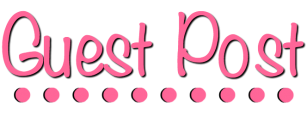
How to Not Hate Your Voice (And Other Lessons Learned From Listening to My First Audiobook)
By Author E.A. Sandrose
Like many people, I tend to cringe at the sound of my own voice in a recording, so I’m always surprised when people ask if I narrated the book myself. Um, no. Obviously. Though if it was obvious, they clearly wouldn’t have asked.
The truth is that it never occurred to me not to hire a professional to narrate The Every Stone. (Interesting tangent—according to a TED talk I watched, our voice sounds deeper and more musical to us live than played back because of the acoustics inside our skull.) Being mildly tone deaf and an introvert, I recognize my limitations in the performance department. During high school I enjoyed hanging out with the artsy kids in the drama crowd, but preferred to be behind the heavy green velvet curtain, helping with villain mustaches and stage sets. Which turned out to be good training for world building, now that I look back.
However, when it actually came time to pick a narrator for my first-ever book, I was pretty apprehensive. How in the world to find someone who could convey all the wildly different characters—an imprisoned, thirteen-year-old herding girl, a big burly pirate, a sentient gemstone? Magically, it turns out that this is what actors do, especially the really good ones.
Enter Ulka S. Mohanty, an experienced audiobook narrator, voiceover actor and screen and stage performer. Out of over a hundred contenders, many of whom were excellent in their own right, Ulka matched all the nitpicky criteria I’d set. Non-western accent, check. Able to embody a philosophical forest monster with big feet in one scene and arguing sisters in the next, check. Farting gemstone, check. I’d found my match.
My job was to provide her the manuscript, some notes on pronunciation, a few character sketches and a glossary...then wait. There might have been some agony involved. What if I loved the auditions but was disappointed with the final performance? Worse, what if I was disappointed with the book I’d written? The what-ifs were endless.
And then the day finally came when the audiobook was done. I steeled myself for the torture of hearing my own words read back to me. All I had to do, all I really could do this late in the process, was listen for syncing errors or sound issues. The first few minutes, all I could hear was the quality of the writing—that paragraph should have been longer, that adjective was used twice… Slowly though, Ulka’s voice broke through. Not just Ulka’s narrator voice, which was so beautifully soothing, but Yrund’s voice too—angry, defiant, despairing. Then the memory of her mother’s voice—calm and chiding. Next came the villain, whose cruel deceit made my skin crawl. I put down the manuscript and my pencil, and lay down on the floor with my eyes closed, listening to Gem Beard thump Yrund on the head, growling in his Douarrian accent. At the end of the chapter, I was stunned. I wanted to hear the next one—author mistakes and all.
Remember, I know how this ends. I wrote the book.
But there are a few things the narrator can do that the author alone can’t, apart from entertaining accents and impeccable timing. First, they give us their voice, a sound that we crave, not just out of nostalgia for our sleepy parents reading to us when we were children, but as an entire species. The first written language didn’t occur until sometime around 3000BC, while the first printing press wasn’t invented until the 1400s. Generation after generation passed on their history, their knowledge and their experience through their voices. Even now, in the era of news at a glance, our brains are wired to listen, whether to a murder mystery set in a scone shop or an adventure fantasy set on a planet with life-altering gems.
The next element the narrator adds is themself. When Ulka reads the story out loud, she imbues it with her own personality and insight, her own experience and imagination. It’s like adding an extra pinch of spice to the pot. So even though I knew all these characters inside and out, I only knew them from my perspective. One of the odd things about writing is just what you include without realizing it. You also become so familiar with the overall story, you can’t really see the parts. Listening to the characters speak was a jolt, like hearing a penpal on the phone after so many years writing letters.
The last thing that struck me was how fully the narrator became one with the story. There’s no self-consciousness in Ulka’s performance, no distancing, no holding back. She’s not on her phone or thinking about her unanswered email. She is Yrund. Stuck in a dark, damp mine with her enemies, facing certain death. My fists are balled up along with hers. Ulka has brought Yrund to life. This is what it sounds like to be brave. To be afraid. To be human. To be a hero. It’s everything I want the girl inside me to hear. It’s everything I want the girls (and boys) out there to hear.
What I thought would be torture for me turned out to be a revelation. When we listen to a story out loud, it creates a sound memory separate from our own inner voices. We identify with the characters. We become them. And we carry that memory around inside us—that time we stood up for ourselves, that time we spoke our truth, that time we were tender.
I might always hire a professional to narrate my books, but the next time I have to read out loud, whether it’s to a small gathering at a bookstore or to myself as I edit, I’ll try to remember—we don’t have to love the sound of our voice to love having a voice. And our voices have power.
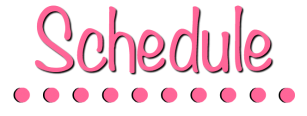

View the full schedule here
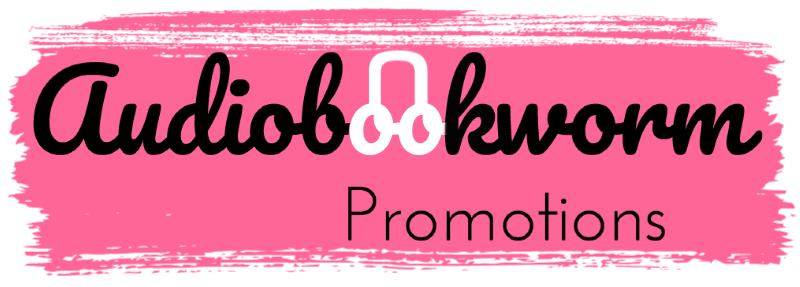
Plugging you into the audio community since 2016.
Sign up as a tour host here.
#Audiotour
with Excerpt - Author Interview and Guest Post
#theeverystone #ya #fantasy #easandrose #kindlenlimited






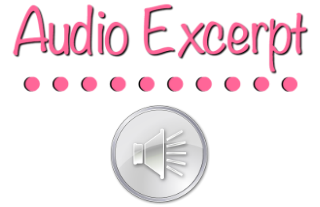
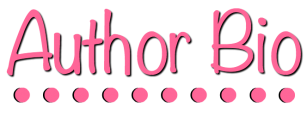
Comments
Post a Comment